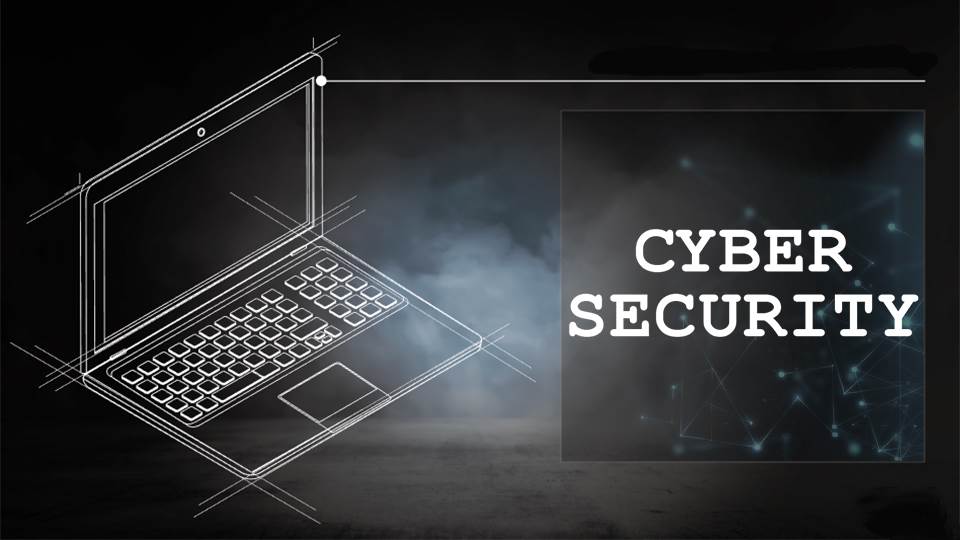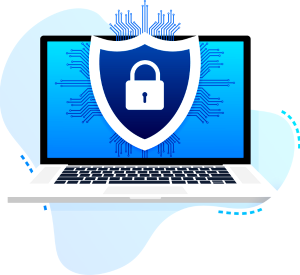#CyberSecurity Awareness Month
Every October, the government and private industry collaborate to increase awareness about digital security and empower everyone to protect their personal data from digital forms of crime.
Your Digital Security is our Top Priority
Cyber security is the prevention of, protection against and management of information systems, data, and resources in cyberspace. It’s an integral part of our daily lives; it’s essential to our society, politics, and economy. However, many people lack basic knowledge of cyber security. That’s problematic as cyber security awareness is vital to ensuring a safe online environment.

We emphasise the need of protecting our nation’s critical infrastructure from malicious cyber activity and individuals and companies from ransomware and other threats during Cybersecurity Awareness Month. We also educate Indians on the easy steps they may take to secure their sensitive data and stay safe online.
Cyberattacks have an impact on our daily life, the economy, and national security. They can disrupt electric grids and fuel pipelines, hospitals and police agencies, companies and schools, and many other important services that Indians rely on every day by damaging, corrupting, or stealing information from our computer systems and networks. As a result, my Administration began working quickly to protect our country and strengthen our defences against cyberattacks.
What is Cybersecurity Awareness?
Cybersecurity awareness is a continuous process of teaching and training employees about the hazards that lie in cyberspace, how to prevent such threats, and what to do if a security incident occurs. It also helps to instill in them a sense of proactive responsibility for the safety and security of the firm and its assets. Simply said, cybersecurity awareness is being aware of potential security hazards and acting responsibly to avoid them.
Being aware of the current security risks, cybersecurity best practises, the dangers of clicking on a malicious link or downloading an infected attachment, engaging online, giving

personal information, and so on are all examples of cybersecurity awareness. Security awareness training programs can help your organization’s improve its security posture and tighten its processes, paving the road for a more resilient business. Cybersecurity awareness must be an organization-wide initiative for it to be most effective and beneficial.
As we become increasingly dependent upon technology, we must improve our online security defences.
Why is cybersecurity awareness important?

Most people are at least familiar with the idea that identity theft and network hacking are possibilities, and they are quite adept at not inadvertently downloading dangerous malware or clicking on dodgy links. To protect oneself from internet attacks, corporations commonly employ firewalls, comprehensive IT defense systems, and IT rules and standards. So, how can smart firms continue to be hacked?
The Threats of Cyber Engineering
It’s easy to understand: human error. Indeed, social engineering—the psychological manipulation of victims in order to force them to accidentally relinquish private data, corrupt their equipment, or grant hackers network access—is the most common source of cybercrime. Phishing is an excellent example of this. Hackers can construct access points to mine employee login credentials by using fraudulent emails or websites to encourage employees to disclose private employee data. Malware is another frequent technique that involves inserting malicious code in apps or software (and tempting employees to download it), providing hackers rapid access to corporate data and assets.
Security Risk Reduction
Because these types of security threats cannot be stopped or even detected by technology, the only effective way to mitigate these attacks is to make your people aware of them in the first place. Furthermore, security awareness advice is critical since anyone with a network-connected computer or mobile device can be targeted, and hackers will go to any length to steal your data or blackmail your firm. All of those sophisticated and expensive firewalls and precisely prepared regulations will be useless without an established culture of cyber security awareness and enforcement.v

